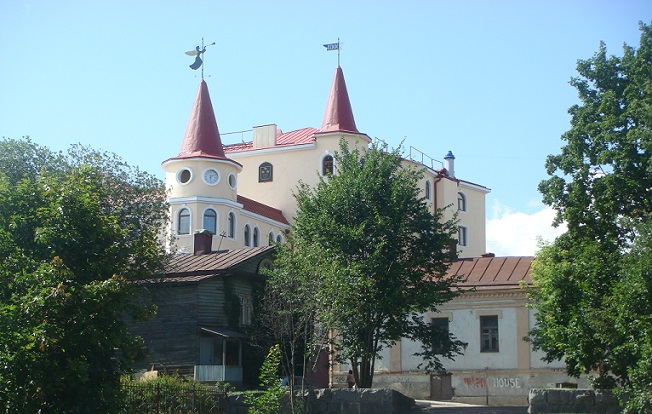Heritage Alert: Historic City of Vyborg, Russian Federation

Download the letters sent by ICOMOS to:
• the President of Russian Federation, Mr Vladimir Vladimirovich Putin;
• the Prime Minister of the Russian Federation, Mr Dmitry Anatolyevich Medvedev;
• the Governor of Leningrad Region, Mr Alexander Y. Drozdenko.
Download the full Heritage Alert Background Document
Besides the urgent measures underlined in the letter, ICOMOS advocates the following overall long term objectives for Vyborg:
1) A long-term management plan for the preservation of Vyborg should be developed as a joint effort of both domestic and international stakeholders, taking into account the multicultural character of the city.
2) The socially, culturally and economically sustainable development of Vyborg should be pursued through a coherent set of inter-linked policies and activities which all contribute to the preservation of historic Vyborg and enhance national and international cultural tourism to the city.
3) Adequate legal tools and standards for the protection of the built heritage of Vyborg should be developed.
4) Methodological capacity building in the field of heritage preservation, such as the training of staff in charge of the heritage sites and buildings, should be ensured. To this end, the momentum of the recently completed successful restoration work on the Alvar Aalto Library should be fully utilized.
5) The obstacles to organizing and financing professional research, detailed documentation and evaluation of the city structure, its buildings and interiors, and archaeological objects should be addressed and resolved.
6) Urban planning decisions should be made more transparent. Free access to land use planning data should be ensured, via the Internet; for example, the ownership of land and historic buildings, monuments and their territories, protection zones and their protocols.
7) Land use planning and infill development should follow as much as possible the historical land division and lot boundaries and scale of building.
8) The federal authorities of Russia are encouraged to assess the problems of the historic city of Vyborg in the light of international criteria for the conservation and management of historic cities (especially The Valletta Principles for the Safeguarding and Management of Historic Cities, Towns and Urban Areas) and to develop an extensive programme for the revival of Vyborg as a prominent international heritage, architectural, museum and tourism centre.
9) The values of Vyborg’s cultural heritage should be broadly presented in the media and education, particularly in Vyborg and St. Petersburg.
10) The administrations of the City of Vyborg and Leningrad Oblast should enter into discussion and involve experts on the preservation of cultural heritage in the above mentioned processes, and establish an international cooperation mechanism for this purpose.


Images:
Above: The new residential house “Linna” in the historical center in 2013, a result of post-war demolitions © Sergei Gorbatenko
Below: The Clock Tower in 2016 (left) and the ruins of the “Domus” residential building (Goving House) in 2015 (right) © Sergei Gorbatenko
